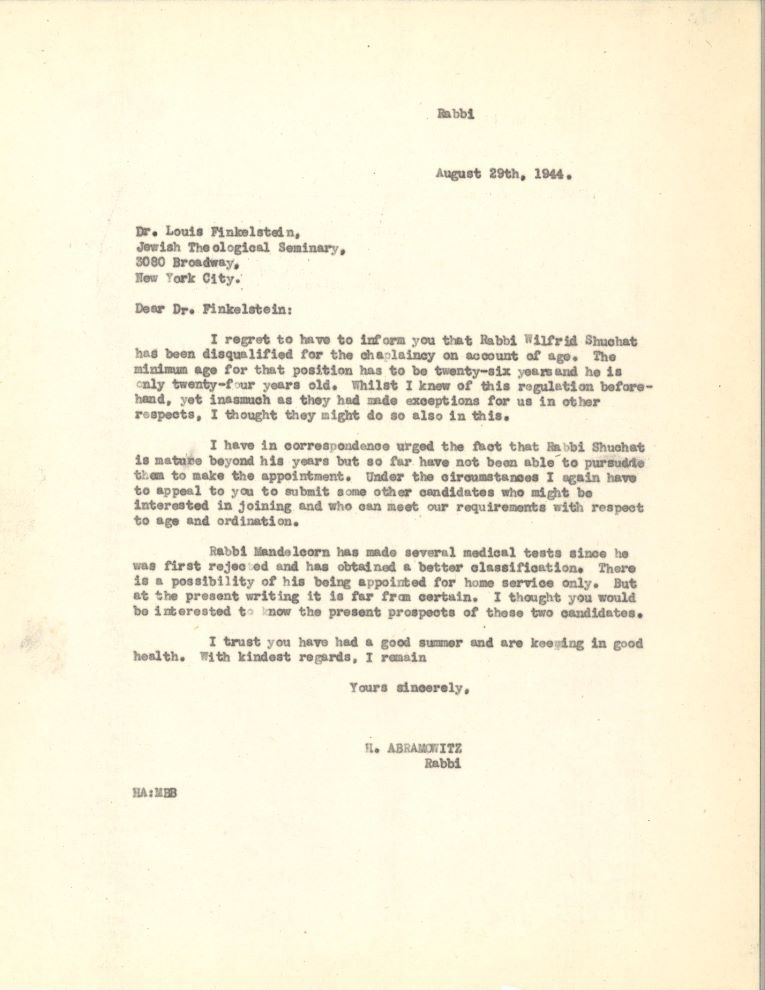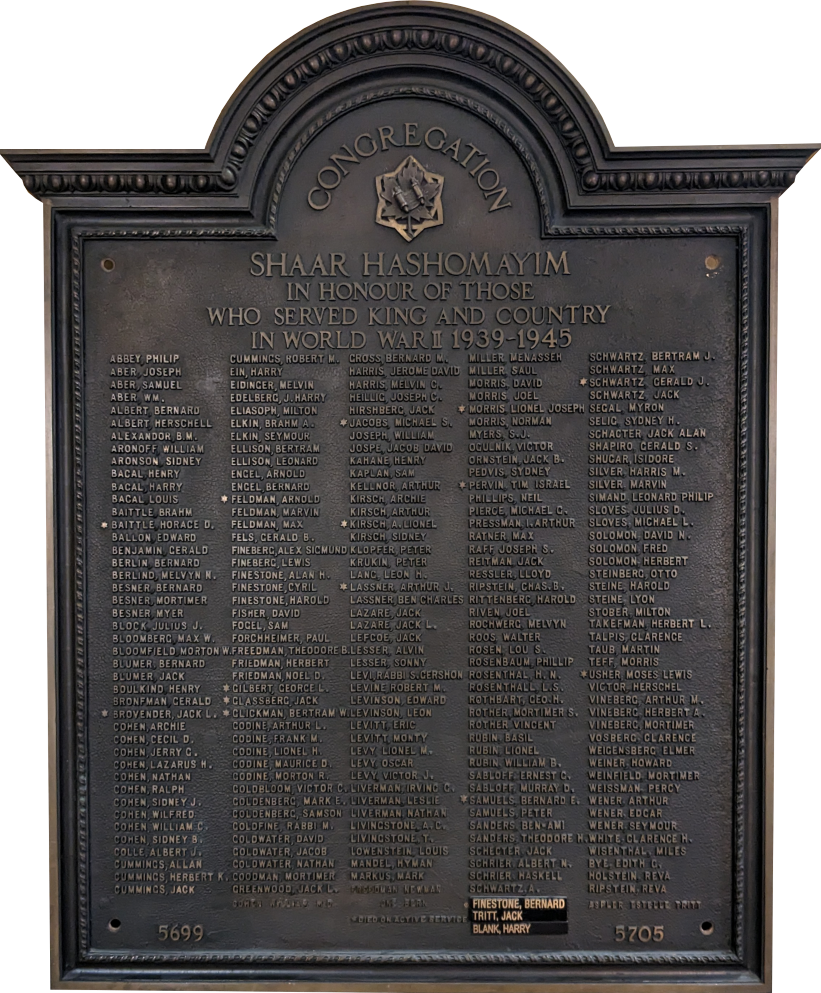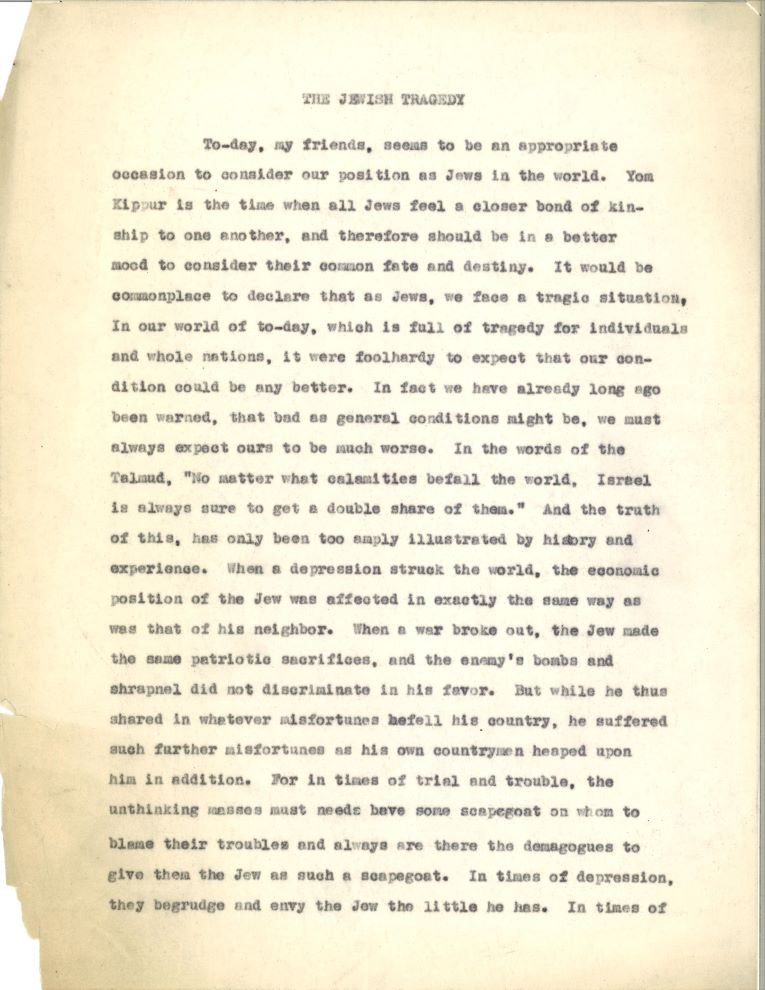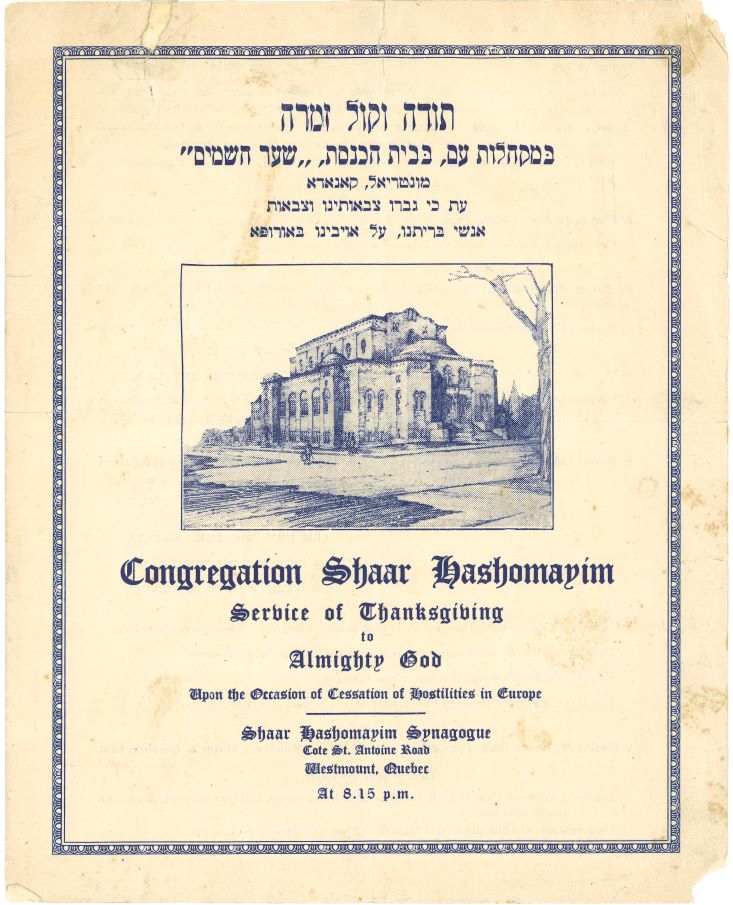Part 5: The War Years, The Synagogue from 1939 to 1945
The Shaar was deeply affected by World War II. More than 200 members of the synagogue enlisted to serve in various capacities.
As chairman of Canadian Jewish Congress’s Religious Welfare Committee, Rabbi Abramowitz oversaw the religious needs of Jewish Canadian soldiers and selected Jewish chaplains for the Canadian Armed Forces. One of the first chaplains appointed was the synagogue’s then-Educational Director Rabbi Gershon Levi, who served overseas from 1941. The Committee met on a regular basis to discuss matters such as the publication and distribution of prayer books for Jewish soldiers and the accessibility of kosher food.
In an interesting historical anecdote, Rabbi Abramowitz for a brief period considered appointing Rabbi Wilfred Shuchat to a chaplaincy role. Regrettably, the 24-year-old Rabbi Shuchat was two years younger than the minimum age required to serve as chaplain and was thus disqualified. Just two years later, however, he would be hired as the Shaar’s Assistant Rabbi.

A letter from Rabbi Herman Abramowitz to Dr. Louis Finkelstien, (August 29, 1944) regarding the potential appointment of Rabbi Wilfred Shuchat as an army chaplain.
On the home front, many congregants were involved in the war effort. This was the case for Horace R. Cohen and Jack A. Klein, who were administrators for the clothing industry under the Wartime Prices and Trade Board. Both men were later appointed to the Order of the British Empire (OBE) in recognition of their work.
The Congregation also experienced an unexpected increase in its Hebrew school pupils when 37 Jewish children from London, seeking refuge in Canada from the Blitz, enrolled in the school.
Facing the Holocaust
It is a common misconception that the horrors of the Holocaust where unknown to the world before the end of the Second World War; indeed, Jewish communities worldwide were constantly sounding the alarm. On Yom Kippur in 1941, Rabbi Abramowitz delivered a powerful sermon entitled “The Jewish Tragedy,” in which he addressed the tragedies already wrought upon Europe’s Jews and those which were still ongoing.
When speaking about Jews living in Nazi-occupied territories, Rabbi Abramowitz writes: “To-day they are no longer heard from; and are as if completely blotted out.” He urges the Jewish community to “strengthen the spirit of Jewish loyalty everywhere, as an answer to the challenge of our enemies.”
When the War ended in 1945, the Shaar held a special service of thanksgiving, which included a “prayer for the remnant of Israel who survived the Nazi atrocities.”




